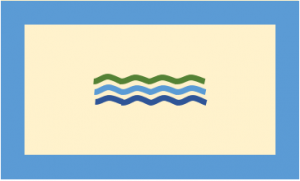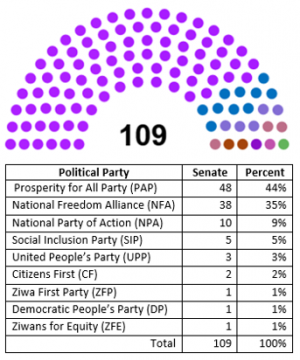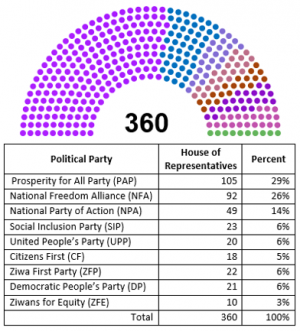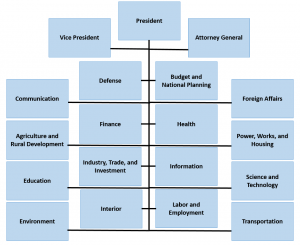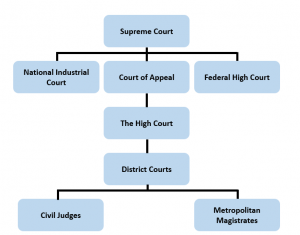Political: Ziwa
Ziwa’s history since gaining independence is fraught with coups, disputed elections, regional and ethnic violence, and general instability. While Ziwa has demonstrated intent to improve its democratic governance, a lack of deep-rooted democratic and civil society institutions make it one of the most vulnerable and unstable countries in the region. Despite a troubled past, Ziwa is making progress in recent years toward greater transparency and good governance practices.
Ziwa gained independence fifty-seven years ago. Three years later, a controversial election fueled regional and ethnic tensions. Eight years after the beginning of self-rule, a military coup resulted in the death of the sitting president; military-led governments would continue until nineteen years ago.
Overall, Ziwa maintains a Level of Freedom categorization of Partly Free and a ranking of 5 on a 7 point scale.
Contents
[hide]- 1 Centers of Political Power
- 2 Attitudes Toward the US
- 3 Type of Government
- 3.1 Branches of Government
- 3.1.1 Legislative Authority
- 3.1.2 Senate
- 3.1.3 House of Representatives
- 3.1.4 Executive Authority
- 3.1.5 Judicial Authority
- 3.1.6 The Supreme Court
- 3.1.7 The Court of Appeal
- 3.1.8 The Federal High Court
- 3.1.9 The National Industrial Court
- 3.1.10 The High Court of a State
- 3.1.11 Civil Judges and Metropolitan Magistrates
- 3.2 Local and Regional Government
- 3.1 Branches of Government
- 4 Government Effectiveness and Legitimacy
- 5 International Relationships
- 6 Influential Political Groups
- 7 Summary
Centers of Political Power
The president of Ziwa is the chief executive and the military’s commander-in-chief. The National Assembly is given authority to regulate the powers exercised by the president as commander-in-chief of the armed forces, as well as the appointment, promotion, and disciplinary control of members of the armed forces. A judiciary interprets laws and exercises its judicial responsibilities in accordance with the constitution and laws passed by the National Assembly and approved by the president. The threat of a military coup looms over Ziwa’s frail and tenuous democracy. While Ziwa’s civilian government is stronger with each iteration of election and peaceful transfer of power to electoral winners, it is still conscious of its vulnerability. Corruption and patronage involving both military and civilian organizations is a perennial threat to this developing stability.
Military Authority
The military exerted central control through much of Ziwa’s history. This past gives the military an imprint that permeates the memory of Ziwa’s leaders and older citizens. Its relatively new civilian government is particularly conscious and mindful of this historical imprint, causing its relationship with the military to be cautious.
Shortly after its independence, a military coup overthrew the civilian government and assassinated the president. Forty-one years ago, another military coup replaced the sitting dictator; three years late another coup brought a new military regime, who promised free elections. These elections established a civilian regime, albeit one that suffered constant accusations of fraud and corruption. After eight years, the people of Ziwa reelected the president, amid these accusations; this eventually led to another military coup and subsequent period of military rule. Nineteen years ago, Ziwa established its current civilian government and held elections the following year.
Ziwa continues to shed the vestiges of authoritarian governments and the outsized influence of its military. It has made strides toward greater transparency and rule of law since the end of its last military dictatorship, however, Ziwa’s democratic government is fragile and is always sensitive to the threat of a military coup.
Family Authority
Although the Ziwan constitution grants universal suffrage to Ziwans at least 18 years of age, the patriarchal nature of Ziwan culture puts heavy emphasis on the opinions of male members of families. This is particularly true for families who adhere to more orthodox forms of Islam, Christianity, and indigenous religions. Families tend to favor the opinions of fathers, village male elders, and other male authority figures.
In recent years, outside influences from social media, international pressure, and a developing civil society sector have caused shifts in the traditional societal dynamics. With the entry of more women into leadership positions in business, government, and other areas of Ziwan society, the traditional patriarchal family is allowing women to take on roles historically given to men.
Religious/Clerical Authority
Religious leaders have the most influence locally. In some areas, tensions develop between religious majorities and minorities. A few Muslim and Christian leaders have gained attention on a national stage and exploited these regional tensions through broadcasted sermons and publications. Periodically, an altercation between members of different religions that may have been dealt with locally in the past, have been elevated to national attention through these provocative leaders and their social and other media.
Attitudes Toward the US
American relations with Ziwa during its years of military and authoritarian regimes were tenuous, with the US openly condemning Ziwa’s leaders from time to time. Since Ziwa returned to civilian rule, the US invested more heavily in initiatives to support Ziwa’s emerging democratic and civil institutions. The US supports women’s and children’s health initiatives, HIV/AIDS treatment, nutrition and food security, economic growth, energy infrastructure, sustainable development, and security. The United States also provides development assistance to Ziwa aimed at promoting democratic governance, addressing health and education issues, promoting broad-based economic growth, and advancing regional and domestic security.
Several exchange programs welcome citizens from Ziwa to the United States, including the Fulbright Program, Hubert Humphrey Fellowship, and the Young African Leaders Initiative. Short term exchanges, small grants, and other public outreach programs support the development of artists, journalists, writers, civil servants, young leaders, musicians, and students.
Attitude Toward US Trade
The US and Ziwa enjoy strong economic ties. International trade is a vital component of Ziwa’s economy. Trade and industrial policy in recent years has moved steadily away from a highly protected, inward looking self-sufficiency, and toward active participation in the global economy. Ziwa capitalizes on its natural resources when dealing with advanced Western economies, and relies on its competitive manufacturing advantages relative to other nations in Africa. The United States is one of Ziwa’s largest trading partners. It is a beneficiary of the US Generalized System of Preferences, which grants duty-free treatment for more than 4,500 products.
Type of Government
Fifty-seven years ago, a western colonial power allowed the formation of three leading political parties ahead of ceding to Ziwa control of its own government—Prosperity for All Party (PAP) led by Akia Bello, National Freedom Alliance (NFA) party led by Dembe Okafor, and Democratic People’s Party (DPP), led by Dembe Dimka. No party had a clear majority, so the PAP and NFA allied themselves with each other. The PAP positioned its candidate as president and the NFA accepted the less powerful vice president role. The DPP is a regional party and is historically prone to calls for secession from Ziwa.
The constitution established a bicameral government with a president and vice president leading an executive branch. The western colonial power, however, established a governor-general as a representative and agent of the colonial power. This had the effect of muting self-government and subjecting Ziwa to the continued control of the colonial power as a dominion territory. The constitution also denied Ziwa an effective control over its judiciary as it gave final appellate authority to the Privy Council, established by the colonial power instead of an indigenous federal supreme court and judges. This system subdued the influence of indigenous Ziwan leaders and stunted Ziwa’s move to a sovereign nation.
A new constitution, established fifty-seven years ago, established Ziwa’s first republic under a presidential system of government by replacing the governor-general appointed by the colonial power with a functioning president elected directly by members of a federal legislature. The constitution abolished the Privy Council, gave all judiciary responsibilities to the Supreme Court of Ziwa, and designated it as the final appellate judicial authority over any person or matter in Ziwa.
This inauspicious beginning laid the foundation for continued disruptions, constitutional crises, and other challenges over the next decades. A series of military coups, assassinations, and centralized control of the government set aside the limited gains after the colonial power ceded the government completely to Ziwa. Without a democratic tradition and with a history of military rule, Ziwa is a fragile democracy making incremental progress toward transparency and good governance practices.
Branches of Government
Legislative Authority
The legislature, known as the National Assembly of Ziwa, derives its authority from the constitution that was put in place nineteen years ago. This constitution instituted a republican form of civilian government after decades of military and centralized rule. The bicameral National Assembly is composed of a Senate and a House of Representatives.
Senate
The Senate is the upper house of Ziwa’s bicameral legislature. The Senate’s power to make laws is summarized in the Ziwa constitution. It consists of 109 senators: the 36 states are divided into 3 senatorial districts, each electing one senator. The Federal Capital Territory elects only one senator.
The President of the Senate, elected two years ago, is the presiding officer and primarily guides and regulates the proceedings in the Senate. The Senate President is third in the presidential line of succession. He is assisted by the Deputy President of the Senate. The Senate President and his Deputy are also assisted by principal officers including the Majority Leader, Deputy Majority Leader, Minority Leader, Deputy Minority Leader, Chief Whip, Deputy Chief Whip, Minority Whip, and Deputy Minority Whip. In addition, there are 54 Standing Committees in the Senate chaired by committee chairmen chosen from among the legislators by a system of seniority and political patronage.
Bills may be introduced in any chamber of the National Assembly. The constitution, however, provides that budgetary bills—revenue and appropriation—must originate in the House of Representatives. Regardless of origination, all bills require a simple majority approval of both legislative bodies before being sent to the president for either approval or veto. Bills vetoed by the president require a two-thirds majority in both houses to be overturned.
The constitution provides several unique functions for the Senate that form its authority to "check and balance" other elements of the government of Ziwa. These include the requirement that the Senate advise and must consent to some of the president's government appointments. These include members of the president’s executive council and other specified high level appointments. While the president’s executive council negotiates treaties with foreign governments, the Senate must consent and provide its official approval. It is also the place where impeachments, referred by the House of Representatives, are prosecuted.
Senators are chosen during general elections are serve terms of four years. The Ziwa constitution does not specify any limitations on the number of terms a senator can serve. The next elections will be in two years.
House of Representatives
The House of Representatives is the lower house of Ziwa’s bicameral National Assembly. The current House of Representatives, formed following elections held two years ago, consists of 360 members elected by single-member constituencies using a simple majority system. Members serve four-year terms with no limits on the number of terms a member may serve. The Speaker of the Ziwa House of Representatives, Jenue Ibori, is the presiding officer, assisted by Deputy Speaker Ingumba Okafor. All bills related to money must originate in the House of Representatives. This body also has the power of impeachment. The president, vice president, and all civil officers are subject to impeachment.
Bills may be introduced in any chamber of the National Assembly. The constitution, however, provides that money bills—revenue and appropriation—must originate in the House of Representatives. Regardless of origination, all bills require approval of both legislative bodies before being sent to the president. Bills vetoed by the president require a two-thirds majority in both houses to be overturned.
Executive Authority
The executive branch of government consists of a president and vice president, both elected for four year terms. The president is both the chief of state and head of government and appoints an executive council. The current president, elected two years ago, is Tegama Boro. His vice president is Sadik Adesida.
The executive branch is divided into federal ministries, each headed by a minister appointed by the president. The president must include at least one member from each of the 36 states in his government. The executive council must be confirmed by Ziwa’s Senate. Each ministry also has a Permanent Secretary, who is a senior civil servant.
Some ministries are responsible for various parastatals (government-owned corporations), such as universities, Ziwa Telecommunications, and others. Some parastatals are the exclusive responsibility of the Office of the Presidency, such as the National Electoral Commission (NEC), the Economic and Financial Crimes Authority (EFCA), and the Civil Service Commission (CSC).
Judicial Authority
The Judicial Council (JC) is a constitutionally-created federal body charged with protecting the independence of the judiciary. The JC has constitutionally-granted power to advise the president and state governors on judicial matters, and to appoint, dismiss, and exercise disciplinary control over members and staff of the JC. Procedurally, Supreme Court judges are recommended by the JC and appointed by the president. Federal Court of Appeal judges are appointed by the president from a pool of judges recommended by the JC.
The Ziwan Constitution provides for the following courts:
- The Supreme Court of Ziwa
- National Industrial Court
- The Court of Appeal
- The Federal High Court
- The State High Court
- Civil Judges
- Metropolitan Magistrates
The judiciary faces many challenges, including perceived corrupt practices by judicial officers and interference by politicians and other powerful people in court proceedings. Many of these concerns are legitimate, even as Ziwa continues to make incremental progress toward greater judicial transparency. The constitution provides a framework for judicial integrity, but overcoming decades of authoritarian governance and institutional corruption is a slow and incremental process.
The Supreme Court
The Supreme Court of Ziwa is the highest court and the last court of appeal in Ziwa. The court’s decision on any matter is final and binding on all other courts in Ziwa, though in some circumstances, the president can commute sentences and pardon convicted persons. Supreme Court decisions may be nullified by legislation, and the Supreme Court can overrule itself.
The Chief Justice presides over the Supreme Court. The court consists of the Chief Justice and a number of justices that does not exceed twenty-one. The number is set by legislative action of the National Assembly. The court is considered duly constituted if it consists of seven Justices of the court.
The Supreme Court sits in the Ziwa capital and has original jurisdiction to the exclusion of any other court in certain disputes. These matters include any dispute between the federal government, and matters between states. The Supreme Court does not have original jurisdiction in criminal matters. It has jurisdiction to the exclusion of any other court in Ziwa to hear and determine any appeal from the Court of Appeal.
The Court of Appeal
The Court of Appeal is divided into different judicial divisions. It is headed by the President of the Court of Appeal and consists of not less than forty-nine judges. Like the Supreme Court, the Court of Appeal has both original and appellate jurisdiction. The Court of Appeal is primarily a court of appellate jurisdiction. The original jurisdiction of the Court of Appeal is essentially limited to election petition matters.
The Federal High Court
The Federal High Court is found in each state, and in the national capital. Each court is made up of a Chief Judge and a number of judges prescribed by the National Assembly. The Federal High Court has original jurisdiction over civil and criminal matters determined to be matters of federal law. The Federal High court is divided into judicial divisions for administrative convenience.
The National Industrial Court
The National Industrial Court is headed by the President of the National Industrial Court and consists of the number of judges set by the National Assembly. The National Industrial Court is also divided into different judicial divisions for administrative convenience. This court has jurisdiction over disputes related to the workplace to include labor, employment, trade unions, strikes, and child labor.
The High Court of a State
The High Court of a State consists of a Chief Judge and a number of additional judges prescribed by the State’s Assembly. These courts have jurisdiction to hear and determine civil and criminal cases not specifically assigned to another court.
Civil Judges and Metropolitan Magistrates
Each state has authority to establish civil judges and metropolitan magistrates to hear and decide local cases not specifically assigned to other courts. These courts are created and authorized by acts of the state assemblies.
Local and Regional Government
The Ziwa Constitution allows for establishing a similar system of government for the states as for the federal government, consisting of a unicameral legislature (House of Assembly) with terms of four years, an executive (governor) with a term of four years, and state courts. Each of the thirty-six states and the Federal Capital Territory, are empowered to establish, maintain, and develop judicial institutions, and processes to ensure the rule of law.
Government Effectiveness and Legitimacy
Greater openness has widened the political field to a larger number of political parties and activism. The Prosperity for All Party (PAP) and National Freedom Alliance (NFA) enjoyed primacy from the inception of the nation, each coming to power and opposing the other in turn. Other political parties, while never arising to majority status, join coalitions to advance their particular party platforms. In recent years, civil society organizations, journalists, and other nongovernment organizations have proven successful in exerting pressure on politicians to make fundamental reforms.
Vestiges of Ziwa’s past remain in the form of political and business elites who exert undue and self-interested influence. Corruption at all levels of the government is still present. Political reforms and greater transparency, however, are lessening corrupt influences and creating greater trust in the government. The government has integrated technology into many of the services it provides, resulting in greater efficiency, transparency, and citizen access to government which has been generally well received.
Domestic Political Issues
The Ziwa government faces a number of domestic challenges. Ziwa’s dependence on revenue from precious metal mining—and the multinational companies that operate the mines—contributes to the inconsistent enforcement of labor law. This leads to periodic eruptions of protests and strikes that in turn disrupts the flow of revenue to the government. Judges on the National Industrial Court who hear labor dispute cases receive significant political pressure to find in favor of multinational corporations.
A large portion of the Ziwa People’s National Guard’s approximately 3,800 personnel is comprised of former rebel fighters from border regions: the government wanted to ensure employment for these military age young men while taking advantage of their knowledge of the terrain and people. There are, however, regular complaints about lack of discipline and abuse of citizens in those areas.
The Union of Peace for the Ziwa (UPZ) and the Watasi Gang are two organizations causing significant problems inside Ziwa. UPZ forces have been blamed for attacks on tourists and government anti-poaching patrols in the Serengeti and northwestern regions, while the Watasi Gang is an extremely violent militia group operating in Ziwa’s mountainous northeastern region. Watasi Gang members routinely engage in banditry, raids, poaching, kidnapping, and drug trafficking and smuggling. The Watasi have also been blamed for attacks against tourists: threats have driven many of the tour operators to avoid the area altogether.
Poverty, illiteracy, and poor healthcare also remain significant problems in Ziwa. While making incremental progress, these challenges remain debilitating to economic development efforts. Limited investment in these critical social areas cause many to become passive about the government’s capacity to fix critical problems for a large section of the population.
Elections
Elections in Ziwa are nearly always problematic and rooted in deep ethnic and religious self-interests and conflicts. Ziwan elections are generally fraught with accusations of corruption. Ziwa will be challenged by ineffective voting infrastructure, lack of oversight, and shortages of resources needed to ensure transparent and open elections for the foreseeable future. Recent elections, however, by standards set in the past, are regarded and viewed as a significant step toward more transparent, open, and credible elections. This movement in the right direction is due in part to greater freedom and independence in the media, scrutiny from NGOs, social media and other technology that allows for real-time tracking and publishing of events.
Rule of Law
The rule of law in Ziwa is often subverted by politicians, business people, and the military. A number of recent cases showed a light on some of this corruption. Two years ago, the JC succeeded in having three judges on the Court of Appeal removed from office after a bribery scandal. However, military extortion and abuse of citizens in the border regions are seldom prosecuted, while multinational corporations are usually not held accountable for labor violations: only the most egregious of safety violations evoking reprimands or fines. Nongovernment and civil society organizations are increasingly uncovering violations of human rights.
Corruption
Ziwa suffered from decades of corruption that stunted economic growth, discouraged international investment, and diverted much needed funds from relieving poverty, increasing access to life-saving health care, and improving infrastructure. Some efforts have been made in recent years to uproot corruption from Ziwan society. The most prominent such effort is the Economic and Financial Crimes Authority (EFCA). The EFCA came about in response to international pressure towards greater cooperation in fighting money laundering and in support of the president’s efforts to rid the government of corruption. The EFCA has seen success in its efforts to catch and prosecute corruption crimes. Five years ago, Yaro Okpara, the crusading head of the EFCA, reported to the Ziwan Senate that a number of governors were under investigation.
As international corruption rankings indicate, Ziwa has a long way to go in order to root out corruption from the government. A history of corruption wove a system of doing business into Ziwa’s social fabric that is not easy to extract. It will take many years of concerted effort to put in place the necessary reforms and framework to root out the endemic corruption.
International Relationships
Regional Actors
Amari
Amari maintains good diplomatic relations with Ziwa. The Amari government supports Ziwa’s ruling government and uses soft media to influence the elections in Ziwa in their favor. Amari’s biggest concern are the spillover effects from electoral violence in Ziwa. Amari and Ziwa maintain embassies in the other’s country. Ziwa also participates with Amari in efforts to increase regional security and stability through regional organizations and agreements.
Kujenga
Kujenga enjoys warm relations with Ziwa. Kujenga seeks to increase its influence in Ziwa, while reducing the influence of Amari and western countries. Border tensions are causing concerns, but the two countries maintain diplomatic relations.
Nyumba
Ziwa is not geographically connected to Nyumba, so it is not involved in the border disputes and tensions of other countries. It maintains diplomatic relations with Nyumba and has an embassy there.
International Organizations
| Organization | AMA | KUJ | NYU | ZIWA |
| African, Caribbean, and Pacific Group of States (ACP) | x | x | x | x |
| African Development Bank Group (ADBG) | x | x | x | x |
| African Union (AU) | x | x | x | x |
| Election Assistance Commission (EAC) | x | x | ||
| East Africa Development Bank (EADB) | x | x | ||
| United Nations Food and Agriculture Organization (FAO) | x | x | x | x |
| G-77 | x | x | x | x |
| International Bank for Reconstruction and Development (IBRD) | x | x | x | x |
| International Civil Aviation Organization (ICAO) | x | x | x | x |
| International Criminal Court (ICCt) | x | x | x | |
| International Development Association (IDA) | x | x | x | x |
| International Fund for Agricultural Development (IFAD) | x | x | x | x |
| International Finance Corporation (IFC) | x | x | x | x |
| International Federation of Red Cross and Red Crescent Societies (IFRCS) | x | x | x | x |
| Intergovernmental Authority on Development (IGAD) | x | x | ||
| International Labor Organization (ILO) | x | x | x | x |
| International Monetary Fund (IMF) | x | x | x | x |
| International Maritime Organization (IMO) | x | x | x | x |
| International Mobile Satellite Organization (IMSO) | x | x | x | |
| Interpol | x | x | x | x |
| International Parliamentary Union (IPU) | x | x | x | x |
| International Organization for Standardization (ISO) | x | x | x | x |
| International Telecommunications Satellite Organization (ITSO) | x | x | x | x |
| International Telecommunication Union (ITU) | x | x | x | x |
| International Trade Union Confederation (ITUC) | x | x | x | |
| Multilateral Investment Guarantee Agency (MIGA) | x | x | x | x |
| The Non-Aligned Movement (NAM) | x | x | x | x |
| Organization for the Prohibition of Chemical Weapons (OPCW) | x | x | x | x |
| United Nations (UN) | x | x | x | x |
| United Nations Conference on Trade and Development (UNCTAD) | x | x | x | x |
| United Nations Educational, Scientific, and Cultural Organization (UNESCO) | x | x | x | x |
| United Nations High Commissioner for Refugees (UNHCR) | x | x | x | x |
| United Nations Industrial Development Organization (UNIDO) | x | x | x | x |
| United Nations World Tourism Organization (UNWTO) | x | x | x | x |
| Universal Postal Union (UPU) | x | x | x | x |
| World Health Organization (WHO) | x | x | x | x |
| World Meteorological Organization (WMO) | x | x | x | x |
| World Trade Organization (WTO) | x | x | x | x |
| European Development Fund (EDF) | x | |||
| Common Market for Eastern and Southern Africa (COMESA) | x | x | ||
| East African Community | x | x | x | x |
International Economic Associations
Because of Ariana’s oil wealth and its somewhat dodgy status on the global stage, the country’s participation in international economic associations is limited to one exception, namely its non-US dollar denominated oil bourse. The oil bourse is an effort to break the US dollar monopoly on oil transactions. While not truly successful, as the majority of the world’s oil transactions are dollar- denominated, the bourse demonstrates Ariana’s continuing efforts to confront the US.
Military Alliances
Ziwa’s military relations with its neighbors – Amari to the north and Kujenga to the south - is generally stable, despite sporadic low-level incidents along the border. Deployment of dedicated maneuver elements and former rebels in support of border control operations is meant to ensure at least the appearance of security.
In recent years, Ziwa People’s Defense Force has increased its involvement in peacekeeping efforts in the region, often as part of a wider regional security force. Ziwa is also a regular contributor to international peacekeeping forces, taking advantage of both participatory training and funding. Ziwa has intelligence sharing agreements with Amari to combat criminal activities and countering extremists along their shared border and on Lake Victoria.
Influential Political Groups
The Prosperity for All Party (PAP) and National Freedom Alliance (NFA) enjoyed primacy from the inception of the nation; each coming to power and opposing the other in turn throughout its history since becoming a nation. Other political parties, while never arising to majority status, join coalitions to advance their particular party platforms. The increasing freedom of expression in Ziwa is giving birth to new political voices.
Official Political Parties
- Prosperity for All Party (PAP)
- National Freedom Alliance (NFA)
- Democratic People’s Party (DP)
- National Party of Action (NPA)
- Social Inclusion Party (SIP)
- United People’s Party (UPP)
- Citizens First (CF)
- Ziwa First Party (ZFP)
- Ziwans for Equity (ZFE)
Other Domestic Influential Groups
- Ziwans for Greater Prosperity (ZGP)
- Democracy for All Center (DAC)
- Union of Journalists (JU)
- Mine Workers Union (MWU)
- Coalition of City Workers (CCW)
Summary
Ziwa is a nation caught, both geographically and ideologically, between the western leaning Amari and the authoritarian leaning Kujenga. It is the most politically vulnerable of the regional countries as it struggles to build civil society institutions without deep democratic roots or traditions. Corruption, endemic in the authoritarian regimes, is still rooted in the memory and behavior of government officials at all levels. The precious metal-rich Ziwa faces the corruption endemic in a country where large sums of money are concentrated in the hands of a few people. Ensuring transparency and equitable distribution of national funds will require extraordinary leadership and a focus on transparent systems.
Overcoming poverty, unemployment, illiteracy, poor healthcare, and other social problems is a formidable challenge for Ziwa’s developing government. Pressure from civil society groups, journalists, social media, and other organizations is slowly bringing about greater transparency. Increasingly, the citizens of Ziwa are demanding better services and accountability from its leaders which is having a slow and incremental positive effect on Ziwa’s progress toward better governance.

